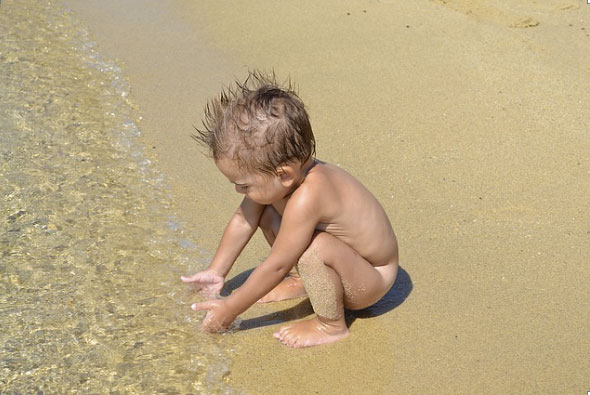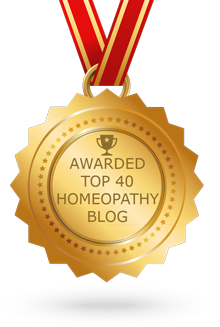While you wait for the homeopathy to kick in, there are some easy, practical ways to help a child with eczema. Some of them you just might not have heard about.
Eczema and Natural Child Health
Eczema is able to be treated using natural child health measures. Eczema is a common skin problem that can sometimes begin before your baby is one year old. The skin becomes dry, red, and itchy. The eczema can sometimes become cracked, and weepy and then turn into scabs.
It can be treated by homeopathy and there are also practical things you can do to help your child feel better. Also it’s good to know that eczema is not contagious.
How do you know it’s eczema?
- Babies might have a dry, red, itchy rash on their face, scalp, body, arms, legs and behind their ears
- Toddlers and older children might have a rash in the creases behind their knees, wrists, elbows and ankles.
- The rash may be on any part of the skin and sometimes the rash can cover the entire skin.
- Sometimes it’s a bit better and then it gets worse.
What causes eczema?
Nobody really knows but if a family member has eczema, asthma or hay fever then it is more likely that your child will have it. Some children with eczema also develop asthma or hay fever.
What can trigger off eczema?
- Over heating your child
- Over dryness of the skin
- Soaps, detergents and other chemicals and fabrics
- Food allergies or intolerances
- Allergies to dust mites, plant pollens or animal fur
- Viruses and other infections.
What can I do at home to help my child with eczema?
- Avoiding the main triggers, such as overheating (especially long car trips) and skin irritants
- Keep your child’s skin moisturised to avoid dryness, some children need it several times a day – not just once
- Avoid things which irritate the skin
- It takes a while to work out what it is that irritates the skin in each child
- If dummies, dribbling or food around the mouth is irritating then apply an ointment prior to eating
- Avoid itchy material such as wool or acrylic clothing, bedding and car seat covers. If the child is crawling keep an eye on the carpet and floor covering
- Be watchful of detergents, soaps, bubble baths, antiseptics – in case they are irritating
- Some children may need to avoid contact with animal fur
- Some children will really benefit from a swim in the salt water and others will be aggravated by the sand and salt water
- Avoid saying “Stop” to your child when they are scratching. Instead try to apply a soft, cool wet towel to the itchy area for immediate relief and leave on for 5-10 minutes. Remove this wet dressing and apply a thick layer of moisturiser after it. Distract your child when he/she is scratching. Keep your child’s fingernails short and clean.
- On very uncomfortable itchy hot days a wet T-shirt or singlet can help get your child through a bad patch.

Do you think you sometimes overheat your child?
- Many of us do overdress and overheat our children
- On hot days try dressing your child in just 1-2 thin layers of cotton clothing
- Give your child a bath twice a day and make the bath a little cooler than normal
- Remove doonas and woolen blankets from your child’s bed and use a cotton blanket or sheet instead
- Tell other people who care for your child about the possibility of overheating. This includes well-meaning grandparents, family day care, kindy and school teachers
Is diet important for children with eczema?
For some children (but not all) food allergy and food intolerances may be the main trigger especially if your baby has very widespread eczema. Sometimes older children can be intolerant to acidic foods and preservatives leading to eczema breakouts around the mouth. Consider all food ‘innocent until proven guilty’. However, please don’t go on a restrictive diet unless advised by a practitioner.
When should you see a doctor?
- If your child has a rash and you don’t know if it is eczema and your child needs a diagnosis
- If your child is already diagnosed with eczema and seems to have an infected area or a ‘new’ kind of rash as well
When should I take my child to a homeopath?
If you are interested in an alternative type of treatment without the use of cortisone cream. Eczema is one of the most common conditions treated by homeopaths around the world
Is there any research about homeopathy and eczema?
A study in Japan set out to evaluate the effect of homeopathy on intractable eczema. Seventeen people were given individualized homeopathic treatment in addition to continuing their conventional dermatological therapy. Although all of the patients had previously been treated with conventional medicine and various psychological approaches, they still had severe conditions. Over 50% improvement was reported by all patients using homeopathy despite the severity of their condition.
- Filling in the Gaps: A Homeopath’s Tour of a Dental Technician Lab - 08/11/2024
- Homeopathy surge worldwide - 11/08/2024
- Autism is helped by several different styles of homeopathy - 07/05/2024




Leave a Reply